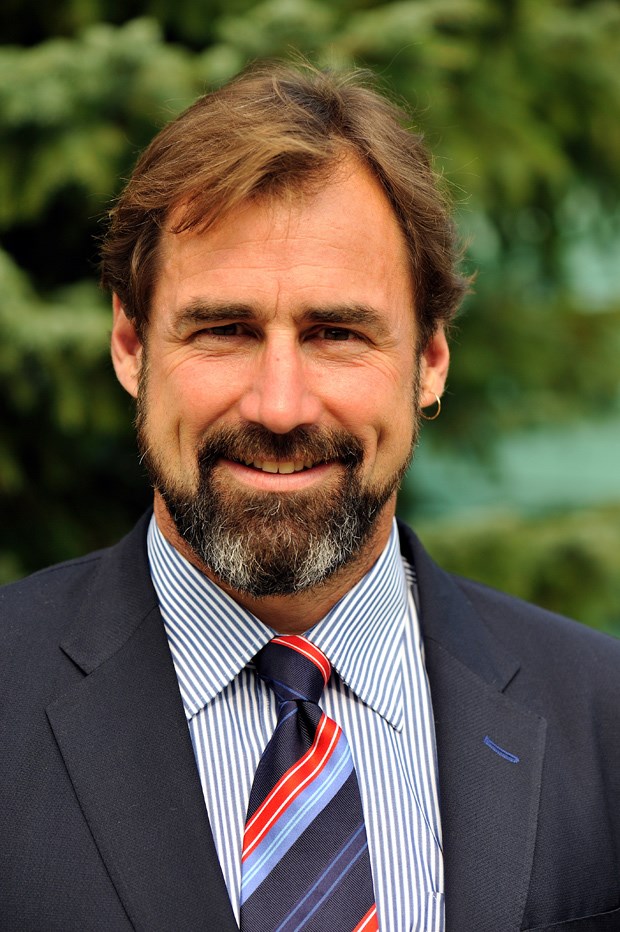 It’s going to come down to some kind of technological advance that will upset all conventional thinking on carbon emissions and create a breakthrough on reducing greenhouse gases.
It’s going to come down to some kind of technological advance that will upset all conventional thinking on carbon emissions and create a breakthrough on reducing greenhouse gases.
That’s the view of Liberal MLA Jordan Sturdy (West Vancouver-Sea to Sky), who chaired the climate leadership team that filed a report last week on what B.C. has to do to continue fighting climate change.
He said Wednesday even if the government adopted all the far-reaching new measures outlined in the report, the modelling shows B.C. still wouldn’t meet the legislated target of an 80 per cent reduction from 2007 levels by 2050. The team concluded that one way-station en route to that goal — a 33 per cent cut by 2020 — is already going to be missed.
Sturdy said he senses an expectation that upcoming technological changes will upset all the equations and forecasts. “We’ll all go back to square one and say: ‘Now what?’ It won’t be a bad thing.”
So the team stressed the need for reviews every five years to keep abreast of changes. The plan needs to be regularly revisited “because God knows, things change in a hurry.”
A pilot project in his own riding — at Squamish — could be an example of what’s possible. It’s partly funded by Bill Gates and started several weeks ago sucking carbon right out of the atmosphere and turning it into fuel, on a small scale.
“I cannot imagine this kind of work isn’t taking place elsewhere. Somebody is going to come up with something, and make a gazillion dollars.”
In the meantime, Sturdy said, the approach is to “incentivize people to find the balance to consider how to reduce emissions. At the same time, there is no point in being punitive to the point of forcing them to relocate outside B.C.”
Although the target might be missed, the goal is what kept the team together, he said. It had very disparate interests, and the fact it reached consensus on almost every recommendation was an achievement in itself.
“The objective was to get toward the 2050 target ... It’s a matter of doing something, not doing nothing. Everybody agreed on that goal, maintaining reasonable growth and not negatively impacting different populations and industries.”
Speaking as an MLA, he said, it’s an illusion that the problem has to be solved in B.C., when it’s a global issue.
“We can’t solve the world’s problems, but we also don’t have to necessarily contribute to them, either.”
The climate leadership team’s careful wording on the proposed liquefied natural gas industry reflects a view that natural gas is going to play an important role for 40 years or more as a transitional fuel, between oil or diesel and totally clean energy.
“That demand is there, that demand is going to be satiated. Somebody’s going to fill it. Are we better off to let Qatar or East Africa or Russia provide it? Are they going to consider their indigenous populations? Do they have a transparent environmental process?
“I tend not to think so. We can do as good a job as anyone else and probably better. So why not?”
Sturdy said he has been “a little irritated” listening to the applause for recent moves by Alberta, Ontario and the U.S., accompanied by the characterization of B.C. “as some sort of has-been.”
“We have done a good job in B.C. generally on emissions,” he said, pointing out it’s the only place in Canada with low-carbon fuel standards.
“You can pick out bits and pieces here and there where other jurisdictions are ahead of us, but overall, we’re going in the right direction. We just need to continue.”
Meanwhile, at the Paris climate summit, Environment Minister Mary Polak also cited the need for balance.
She told CBC on Wednesday that B.C.’s carbon tax is one of the highest and most broadly applied.
“That starts to pose a risk to your economy and industries, when you’re not competitive. Yet we know if we’re going to have an effective carbon tax, we need to be able to see that incremental rise.”
The government’s response to the climate team’s report is due next spring.



